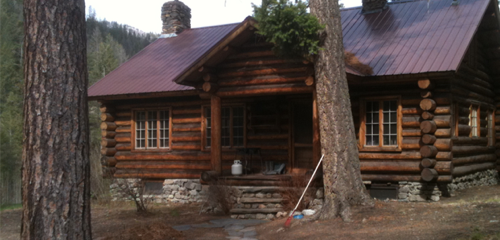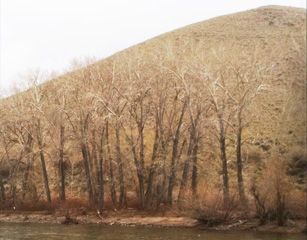Program Areas
We support Rural Education, Rural Human/Social Services, Rural Conservation and Preservation, Rural Health, and Rural Arts and Humanities projects. Read our Overall Guidelines.

Rural Education
In both the Appalachian Kentucky and Idaho and Montana Grant Programs, the Foundation focuses on early childhood to Grade 12 education programming. Examples include funding for supplemental programs in early childhood education settings; elementary, middle, and high school programs that improve outcomes for students; support of literacy programs and out-of-school-time services; and charter schools and other model school programs that provide quality educational options for students and families. We also provide assistance to small public libraries. The Foundation does not accept applications to directly fund higher education, though we will consider early childhood to Grade 12 programs operated by colleges or universities or state or local education districts.
The Foundation considers education projects that demonstrate a comprehensive level of engagement with participants that result in clear and measurable outcomes. We are not able to fund those projects with single or limited interactions with students or those whose primary outcome is to raise awareness or introduce a concept. We are unable to support summer camps.
The Foundation also supports a small college scholarship program only for graduates of high schools in Lemhi and Custer Counties, Idaho. Click here for details.
Rural Human and Social Services
In the Idaho and Montana Grant Program, the Foundation considers programs in support of low-income and under-represented populations, including elders, homeless individuals, people living with disabilities, young children, disadvantaged or disconnected older youth, young people or adults involved in the criminal justice system, and survivors of abuse or domestic violence. Programming within this area also includes support to local libraries, fire-protection services, and local food banks.
Rural Conservation and Preservation
In the Idaho and Montana Grant Program, the Foundation considers land, water, and wildlife conservation; historic preservation and restoration projects; and ecosystem protection programs. All conservation or environmental programs must be locally focused on rural communities or landscapes.
National organizations are eligible for support only if all Steele-Reese Foundation funds will be employed directly in projects located in the geographical areas served by the Foundation and if the coordinating entity can demonstrate substantial connections to the people and organizations in these areas.
Rural Health
In the Idaho and Montana Grant Program, the Foundation considers services in preventive health programs; medical clinics; small hospitals; EMS and ambulance units; family-planning programs, and hospices. The Foundation is not able to support major equipment purchases for rural medical facilities.
Rural Arts and Humanities
In the Idaho and Montana Grant Program, the Foundation considers local arts programs, and the broader support of creative arts activities and efforts to maintain the rich histories of the Foundation’s funding geographies.
Projects in Indian Country
For work proposed in or around Native nations located within Idaho or Montana, or to serve large proportions of Native people in these two states, the Foundation considers the existing relationships between the applying entity and those they propose to serve. We also ask whether the applying entity is Native-led. If it is not, we want to understand:
- The presence of Native staff and Board members or other indicators of how the entity reflects the interests of those they propose to serve or with whom they propose to collaborate;
- How engaged those who would be served or would collaborate have been in determining the proposed work;
- Indicators of local support for this entity working within Native communities;
- If the organization and its project staff are located outside the community it proposes to serve, how often project staff will travel to the community and how long they will stay.

